QuestionMy sister who is 87years old was given a barnyard born kitten three years ago. This cat has always been very unfriendly and will never let you pet her or touch her in any manner though she likes to be near people. She has practically destroyed all the furniture with her clawing, even clawing the wooden stair banisters to shreds. She has a scratching post but won't use it. She is now three. Can she be trained to be more loveable and less destructive? My sister is a widow and wants the cat for company but she is a problem. Can you help us?
AnswerRhea,
No, the cat is NOT a good pet for an older person. The cat is a feral and her personality and temperament will not change. In fact, the older the cat gets the harder it is to 'tame'.
There are MANY sweet and lovable cats at shelters that are going to be put to death because they are unwanted, and because of over-crowding, especially older cats. She would be better off to adopt one of those who will be a loving lapcat. Have her spend some time around them and see who 'clicks'. She wants one that comes up to the cage to be petted, not one who hides.
Ferals are NOT like domesticated cats and will not behave like one. Ferals take special understanding and LOTS of time and patience. Ferals CAN become affectionate and loving, but it takes a LONG time for them to reach that point. And it takes a lot of time, patience, and love. And when they do reach that point when they are affectionate and loving (if they do), they normally still do not like to be held, restrained, and barely even petted. There is a human distrust that is inherited and inbred into them. They will never be like a typical domesticated cat, but they can follow you around, rub against your legs, and lay next to you happily. Getting ferals as newborns or young kittens you have a better chance for a friendly kitty, but even then they still carry the feral behavior with them. Of course there are exceptions, but that is the standard behavior for ferals.
I have 3 ferals that I have had since birth. They are still skittish, don't like to be held/restrained, and run and hide if something scares them (which a lot of things do!). I have one that no one has ever seen because at the first sign of a noise or person she is under the bed for hours! One will not let me pet her...unless she has a toy in her mouth! Go figure! I understand that that is how they are, and how they WILL be. You can't force them to be sociable. Some will be more so than others, depending on their level of trust.
To protect herself from bites or scratches she needs to watch the feral closely. They will give you warnings when they have had enough petting or touching. Ears will pin back, they may growl, but the main sign is their tail. If it starts twitching or swishing back and forth, the time to stop petting them is....NOW! When you have a feral that doesn't like to be touched....don't. Respect how the cat is and accept it. It will make for a happier living situation. Biting and scratching are reflex actions for protection.
They are natural hunters and enjoy being able to do it. They are happiest being able to be an indoor/outdoor cats. If you keep them inside all the time then you have to satisfy that hunting urge inside to keep them mentally well-balanced. Giving them a raw beef rib bone (I have the butcher cut them in half) satisfies the "fresh kill'. Plus the fibers help clean their teeth. They need stuffed toy mice you can throw so they can chase it and "catch" it. A pet laser light is great for letting them try to catch the "little red bug" on the walls, floors, and ceilings. Mine love little sparkly craft balls that you can get in a package at Wal-Mart or a crafts store. Putting a couple of ping pong balls in the bathtub (plug the drain or they will get stuck) is something else they like.
Cats in the wild scratch on trees. Feral cats are the same way....they scratch on wood. The best scratching post is one made with hemp (or sisal) rope, not carpet. Rub it with catnip to let the cat know that it is OK to scratch on. Have a rolled up newspaper handy to train the cat not to use furniture.
Here is a link that has a GOOD 4-part article on ferals that may also be of interest to you.
(copy and paste, or type, the whole link into your address bar)
http://petplacestation.com/articles/?tag=carol-jacobi&paged=2
Tabbi

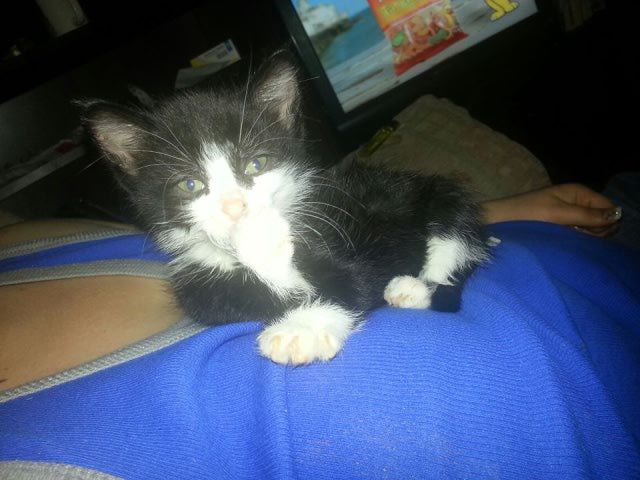 will my cats ever get on?
Question
shola shadow
a couple weeks ago i
will my cats ever get on?
Question
shola shadow
a couple weeks ago i
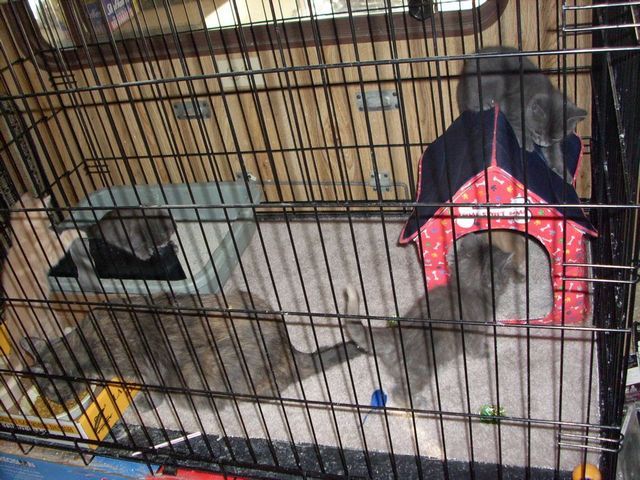 Agression towards guests in the home
QuestionQUESTION: Hello,
About 2 weekends ago, my 4 mo
Agression towards guests in the home
QuestionQUESTION: Hello,
About 2 weekends ago, my 4 mo
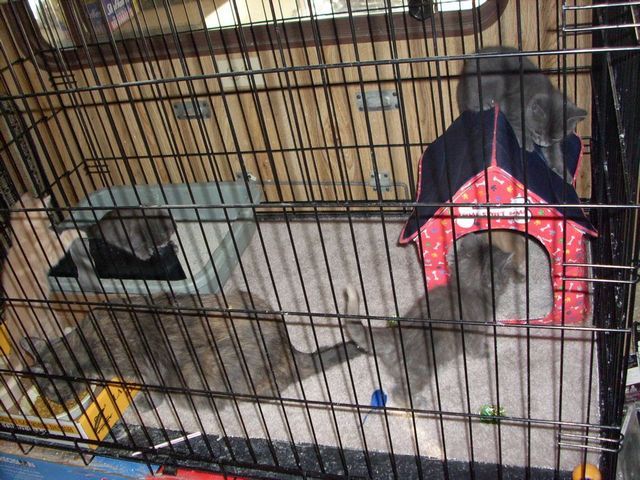 Introducing an adult cat to a resident kitten
QuestionHi Tabbi,
I have a 5 month old kitten that was
Introducing an adult cat to a resident kitten
QuestionHi Tabbi,
I have a 5 month old kitten that was
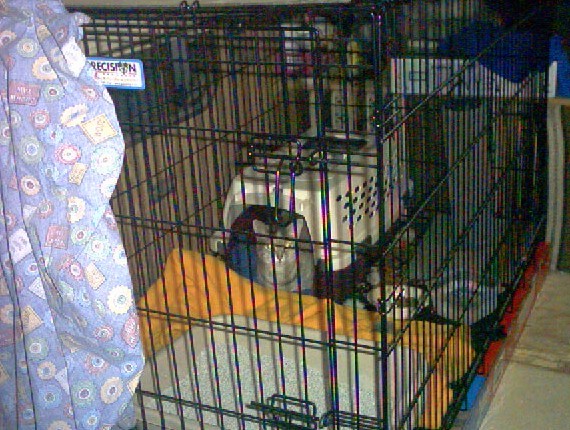 Angry kitten
QuestionI just adopted a young cat. Shes very young, an
Angry kitten
QuestionI just adopted a young cat. Shes very young, an
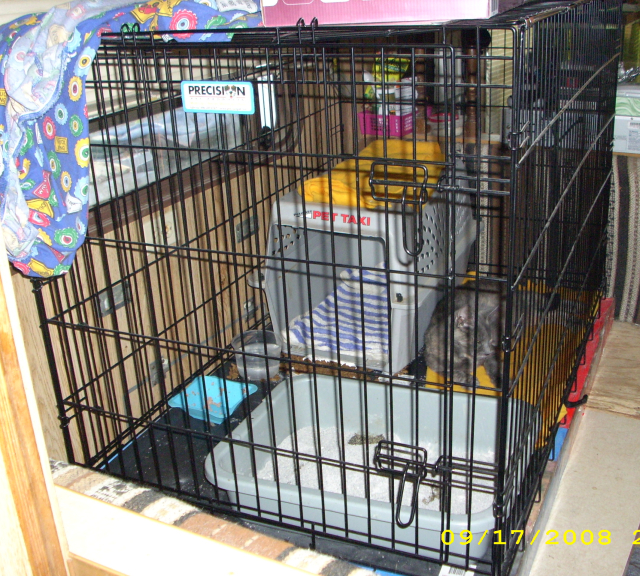 Cat cries when I am on computer
QuestionQUESTION: I have 3 devon rex; 2 male and 1 fema
Cat cries when I am on computer
QuestionQUESTION: I have 3 devon rex; 2 male and 1 fema